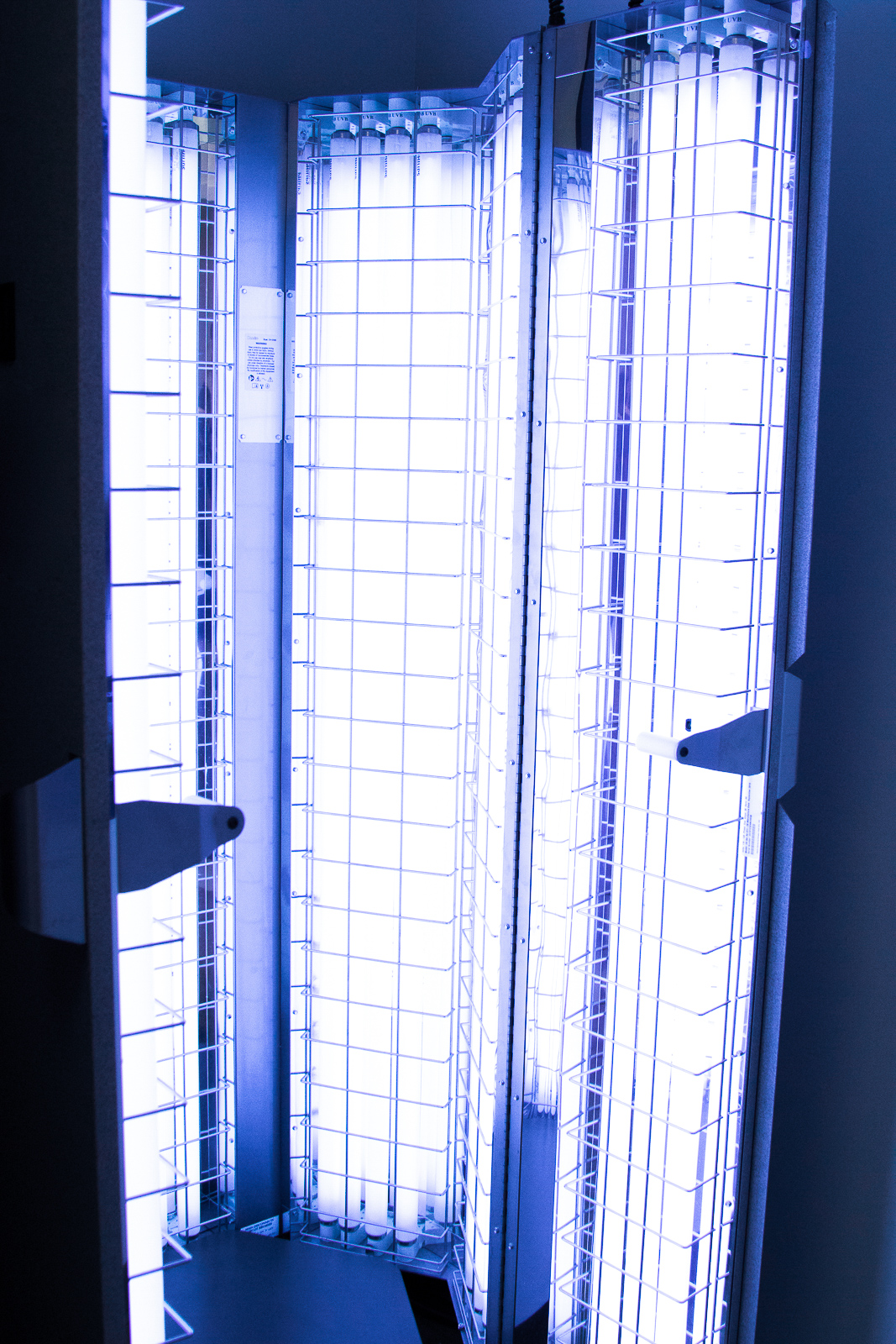WHAT IS PHOTOTHERAPY?
Phototherapy is a type of treatment option that is used in dermatology to treat a variety of conditions that are responsive to a special kind of light, such as psoriasis, vitiligo, eczema, lichen planus, and others. The skin is exposed to the ultraviolet light of varying intensities, wavelengths, and durations to produce an optimal treatment effect.
The mechanism of action is related to the fact that ultraviolet (UV) light helps to block the dysregulated immune mechanisms that are present in the skin of people with skin disease. The response of the skin is unique in each individual and can range from temporary improvement to permanent remission of symptoms.
PHOTOTHERAPY TREATMENTS
There are different types of phototherapy that can be used to treat the skin conditions that are mentioned. The three main types of phototherapy can be split in the broad categories:
NARROW BAND UVB (NB UVB) THERAPY
The most common type of the Phototherapy. Narrow band UV therapy has been shown to be the most effective phototherapy option for many skin conditions, especially psoriasis and eczema. The benefit of NB UVB is that it has very specific wavelength, which is more therapeutic in comparison to other types of phototherapy. Up to 70 % of patients have improvement after such therapy.
PSORALEN + UV A (PUVA) THERAPY
This is sometimes referred to as photochemotherapy because the UV therapy requires asensitizer which is applied to the skin or ingested in order to achieve its therapeutic effects. This form of therapy is reserved for people who do not respond to UVB treatment and now is in limited usage due to its side effects. At our clinic, we mostly use[AB2] of the narrowband (NB) UVB 311 nm, which comes in a full body and compact modes to deliver the light therapy. The unique features of the treatment provided in our clinic is that all phototherapy systems equipped with the real-time dosimetry that allows to calculate precisely ultraviolet energy making the treatment very effective and safe.
BROADBAND UV B THERAPY
This therapy is administered with a phototherapy device and exposes the skin to the full UVB light spectrum. This is not the most ideal since most skin conditions respond to a specific wavelength of the ultraviolet light.

HOW IT WORKS
Ultraviolet treatment is usually given at a clinic or hospital as part of an outpatients’ treatment or in the Office. The device can either be a fluorescent cabinet containing lightbulbs that one stands in. Alternatively, there are compact devices which only target a small area of the skin. The treatment duration and schedule is determined by your dermatologist, depending on your skin type. Initially, when starting narrow band UVB treatment, patient will only be exposed to the light for less than a minute in order to give the skin time to get used to the treatment. Treatments can be given 2 to 3 times a week and a total course typically lasts between 15 to 30 treatments and depends on clinical response.
The amount of skin exposed to the light is primarily dependent on the extent of the disease and the involvement of the skin. Most patients will have their whole body exposed to the light, with the exception of the eyes which are covered with special googles and private areas[AB4] . Historically, it is recommended not to undergo more than 250 treatments in a lifetime in order to reduce the risk of skin cancer which is mostly associated with the PUVA therapy.
If you are interested in learning more about narrow band UVB phototherapy, contact us and we will discuss, if it is appropriate treatment option for your skin condition during the appointment. Please, be advised that we accept new patients only by referral.
